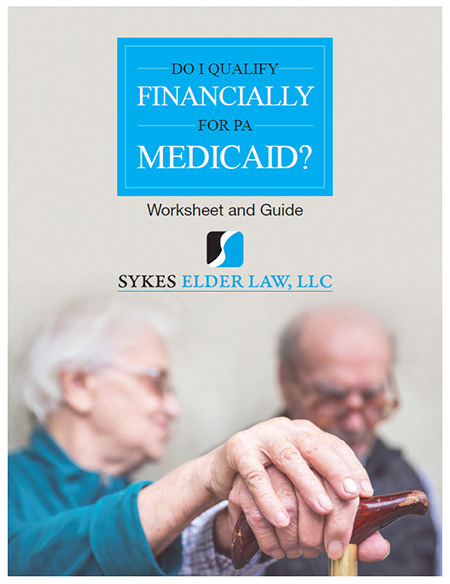This blog post is the fourteenth and final chapter of a series entitled “How to Qualify for Medicaid in Pennsylvania.” This blog post focuses specifically on Medicaid Planning. Qualifying for Medicaid can be confusing and complicated, but this guide helps explain it easily. You can order a copy of the complete guide here.
What is Medicaid Planning?
“Financial planning is inherent in the Medicaid scheme….” – U.S. Court of Appeals for the Third Circuit (Zahner v. Secretary 2014)
Like tax planning or financial planning, the practice of Medicaid planning has arisen to meet the needs of consumers facing complex rules and regulations. This blog post series explains the basic rules for how an applicant qualifies for benefits. But Medicaid law contains many complexities that make it hard for the average applicant to find the best way to spend down while taking advantage of all the available ways to save money and protect assets.
A practitioner skilled in Medicaid planning can help an applicant find the most advantageous path to qualifying for benefits. That could mean making sure a community spouse receives the maximum amount of assets and income allowable by law; establishing and funding a trust for a disabled son or daughter; addressing problematic gifts made during the look-back period; or simply doing everything possible to leave a legacy to the applicant’s heirs.
Who can help me with Medicaid Planning?
Medicaid planning attorneys have developed techniques (too numerous and complex to detail in this blog post series) to use the rules and regulations to the advantage of the client, often resulting in savings and protection of assets far beyond what the client could accomplish without help.
Just as a CPA or other tax advisor can help you find all allowable deductions, and help you structure your affairs for the lowest tax liability, a lawyer experienced in Medicaid planning can help you arrange your affairs to get a favorable result.
Most Medicaid planners are lawyers who have spent years mastering the applicable statutes, regulations, and caselaw, as well as the practical art of getting applications approved in the real world. A few have even passed the rigorous requirements to become a Certified Elder Law Attorney, under the rules established by the National Elder Law Foundation (and authorized in this state by the Pennsylvania Supreme Court). We hope this blog series has helped you understand the fundamental concepts of Medicaid qualification. To get the best result in any individual case, consult legal counsel experienced in Medicaid planning.
This post is part of a series about “How to Qualify for Medicaid in Pennsylvania”
- Medicaid for Long Term Care
- Countable Assets
- Exempt (Non-Countable) Assets
- Asset Limit: Applicant & Spouse
- Spouse's Income
- When No Spend Down Is Necessary
- Gifting & the Medicaid Look Back Period
- How to "Spend Down" to Qualify
- Liability for Care Costs and Applicants' Children
- Medicaid Application Process
- What Happens After Medicaid/ Approval
- Medicaid Waiver Program
- Estate Recovery – What Happens After Death?
14. What is Medicaid Planning?






